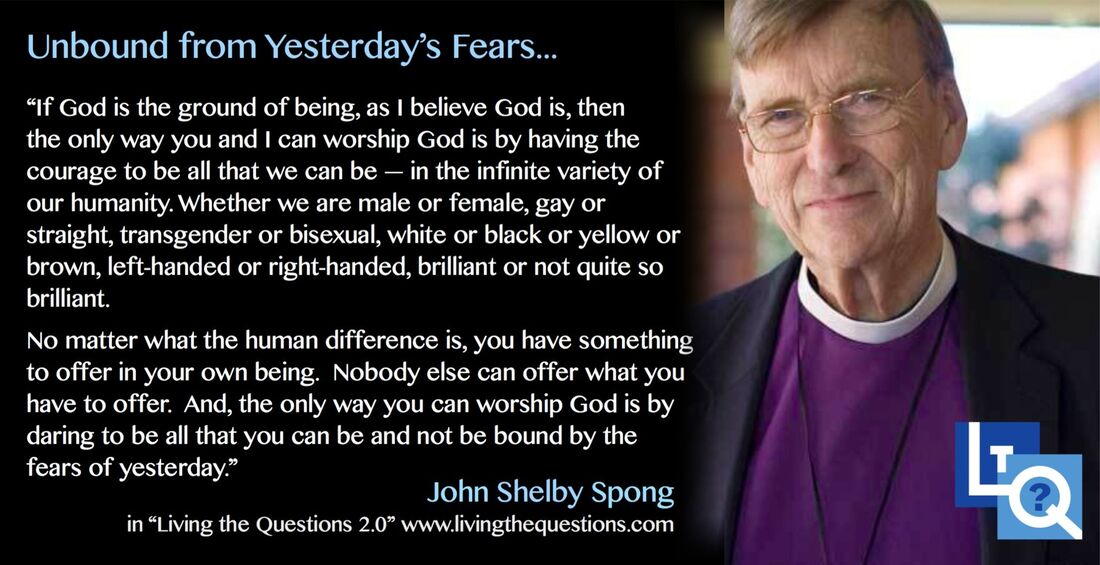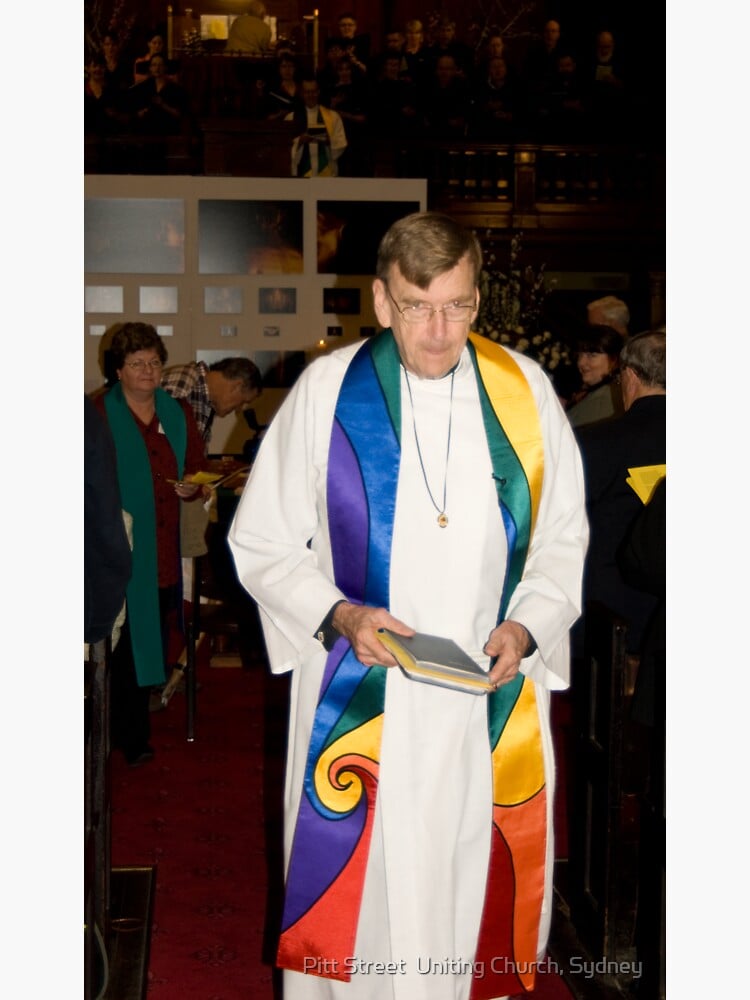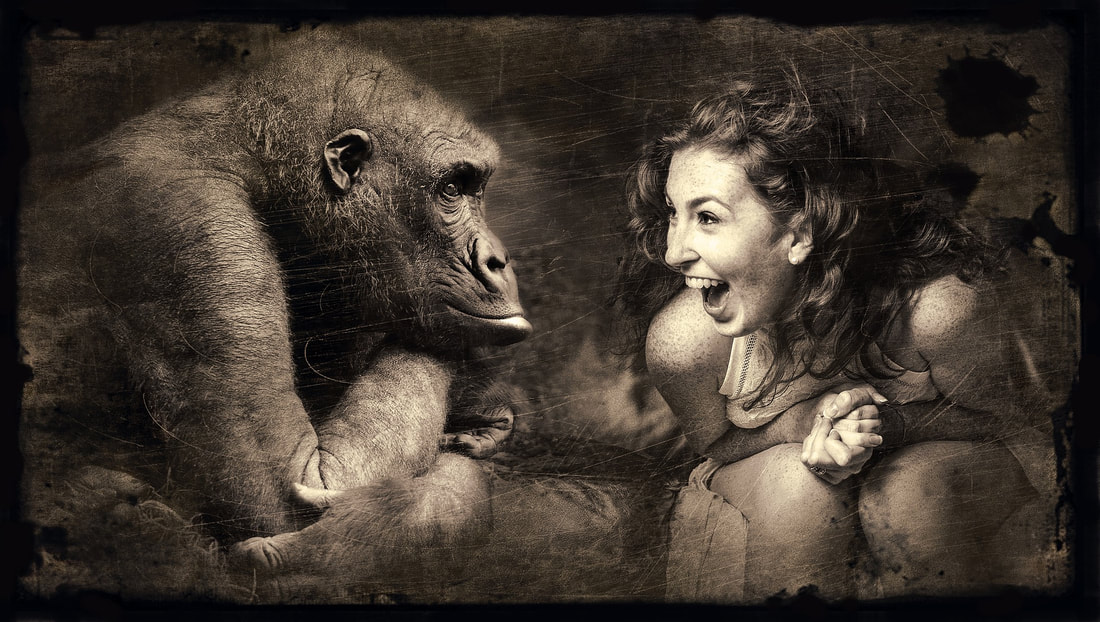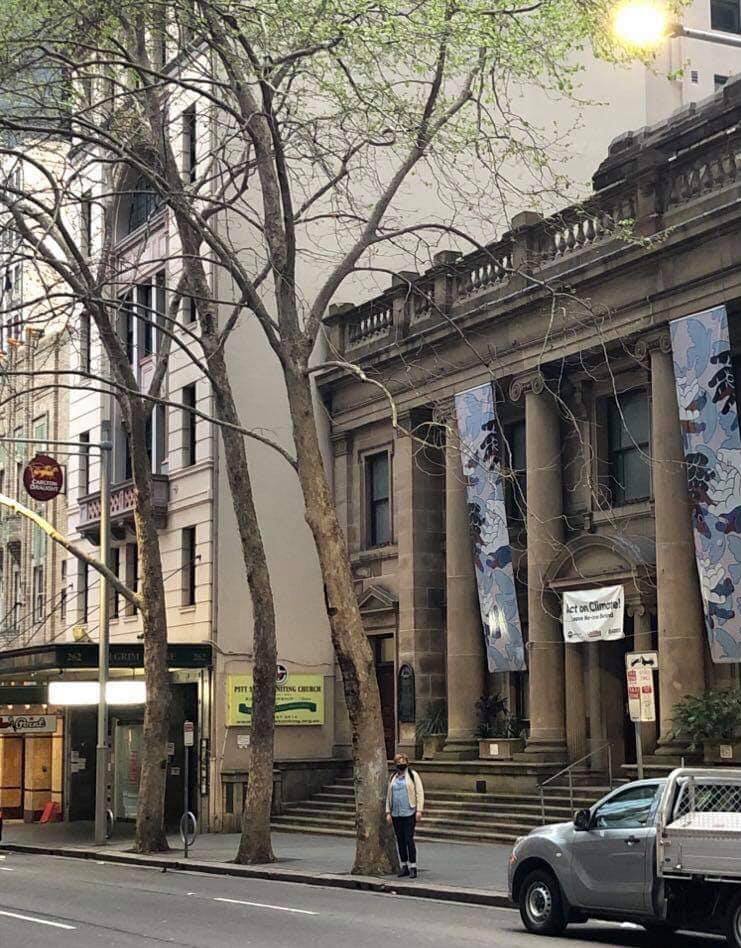|
a reflection on the journey to genuine 'inclusion' for the Diversity & Inclusion Council of Uniting NSW/ACT
Thank you so much for the opportunity of sharing with you today. Let me first acknowledge the Gadigal peoples of the land from which I speak, and their elders past, present and emerging. I would also like to express my thanks for the work Uniting is already doing in terms of diversity and inclusion, including the vital encouragement this is to myself personally. For genuine visibility of our human diversity is so critical and enriching, as I know from my own experience and the huge number of people who contact me, from all kinds of places. joyfully receiving gifts One of the things I have learned from First Nations peoples is the importance of genuineness of spirit and intent. Back in 1986 in Alice Springs, Pope John Paul II put this well in sharing with Aboriginal and Torres Strait Islander peoples. ‘Until your gifts have been offered’, he said, ‘and joyfully received, the Church in Australia will not be that which Jesus Christ wants to see.’ That challenging truth remains central not only to the Church, but to all parts of Australian life. Until First Nations’ gifts have been fully offered, and joyfully received, with justice, then we will never be the country we can be. That must be the underlying theme of all we do in terms of diversity and inclusion. Yet those words apply more broadly, don’t they? Until the gifts of Asian, Pacific Islander, Middle Eastern, African, LGBTQ+ people, and all kinds of Australians have been offered, and – crucially - ‘joyfully received’, then we will not be what we can be. ‘Joyfully’ is a key adjective. What spirit and intent do we really have? If we approach inclusion mainly as an obligation (politically correct or otherwise), we will have missed the point. For one thing, anyone feels more likely to offer their gifts if there is likely to be a joyful reception. We will never maximise the capacity of any organisation, whether a church, a nation, or Uniting, if we do not joyfully embrace the gifts we are offered. What an opportunity we have as we emerge from, hopefully, the worst of what COVID-19 has done to expose the divisions and distinctions of wealth and power among us in Australia! To build back best, fully, and joyfully, enabling diversity and inclusion is vital. The character of our intent and its spirit is crucial. weak inclusion - as a noun In my experience, ‘inclusion’ can be a very weasel word, covering many continuing sins and PR appearances. Organisations have at least three approaches. The first is what I would call ‘weak’ inclusion. It is better than obvious exclusion but essentially about degrees of permission to belong. It is like a noun: it is somewhat fixed, concerned with quotas and boundaries, but really still involving social distancing rather than engagement. At times and in places, the Uniting Church exercises this kind of inclusion. You can belong as a minority, but are you really honoured, engaged, and joyfully received? That too is where many First Nations people were in Anglican circles in Southern Queensland, including in Anglicare, until we began our Reconciliation Action Plan a few years ago. medium inclusion - as an adjective Secondly, there are ‘medium’ approaches to inclusion. This is what I have experienced in moving into Uniting Church ministry. It involves a genuine welcome, with some affirmation, openness to involvement, and certainly much kindness. Whereas ‘weak’ inclusion is mainly being allowed to the table, this might even include being at the head of the table. Other than Anglo ethnicities, and LGTBQ+ and other networks are also taken with some seriousness. Inclusion becomes more like an adjective than a noun – it is about being inclusive, more dynamic than simply inclusion. It is where the Reconciliation Action Plan was in the Anglican Church Southern Queensland when I left, and maybe, where Uniting is right now. It is, however, only a happier, but not yet fully joyful stage. strong inclusion - as a verb A third stage of inclusion has a deeper spirit and intent. This ’strong’ stage is not about even genuine welcome, but about revealing the gifts of all. It includes affirmation but is really about celebration, led by everyone in our diversity when we are all truly empowered. It is about inclusion as a verb: about active practice day by day; including like Uniting, as a dynamic community of living and belonging. It is also wonderful for any organisation. For we no longer have to work hard at showing we are diverse and inclusive. We demonstrably are. It is our very DNA. Others see it, which also saves many promotional expenses! The Uniting Church aspires to this, and at times manages it. The most visible sign is the Covenant with Uniting Aboriginal & Islander Congress - although, even there, questions remain, including about resourcing and how voices are actually heard and make a difference. Yet the Uniting Church as a whole is not there yet. I sense however that Uniting can move into at least some kind of ‘stronger’ inclusion, where all levels of staff and operations see it as their own work. That is another major shift, but ultimately, as it becomes more natural, it in fact requires less work from advocates and leadership than ‘weak’ and ‘medium’ inclusion – for it belongs to everyone, when everyone truly belongs. True including thus also leads on to expansiveness. sea-change We live in the tag end of some frankly rubbish times, when the very dignity of some human beings has been under question. We have major policies of exclusion in Australia, including towards First Nations claims for justice, towards refugees, some migrants and the poor. Currently, we also have hurtful bills of religious discrimination in federal and state parliaments. Yet my belief is that these are rotten but passing times. I see the journey towards Australian diversity and inclusion as like a sea-change. The waves come in at different speeds. Sometimes they rise high: as with the 1967 Referendum, the Apology to the Stolen Generations, Marriage Equality, and so forth. At times they fade away and we think the tide has gone. Yet it will assuredly return. The key thing is to hold faith and make ready for the next big wave of Australian diversity and inclusion. It will come, and those who are prepared can surf it. Others who do not prepare will flounder. For there is, let’s face it, no vibrant and really sustainable future for Australia without renewing our multicultural identity. Uniting is well placed to seize that time when it comes, if it continues to move more deeply into diversity and inclusion. So, May God bless us all in this exciting journey!
0 Comments
As Minister of Pitt Street Uniting Church in Sydney, it is a great joy and encouragement to stand in a powerful lineage of prophetic ministry. The more I come to know, the more I appreciate its vital significance to Sydney, and the wider world, in providing light, inspiration and hospitality to so many. As a community Pitt Street Uniting Church mourns the recent loss of Bishop Spong from our lives in this world, but rejoices in what he shared with us and so many others. We give thanks that we were able to offer a space for him to share God's love even when others were sometimes so hostile. Here above is a photo of the old Pitt Street Uniting Church's celebratory 'Bishop John Shelby Spong Greeting Card'!
(we still rejoice to wear that stole too :-) )  Dare to be indeed. The first time I heard Jack Spong speak was in October 1992 in Methodist Central Hall in London - at the launch of Elizabeth Stuart's then highly controversial landmark LGBT+ prayer book 'Daring to Speak Love's Name: A Gay and Lesbian Prayer Book'. They were historic and testing times. Two weeks later, after our long struggles, the Church of England would finally vote for women's ordination but opposition to queer people was so much more intense. I'd traveled down from Gateshead in England's north east for the occasion, and was one of 300 or so queer people and allies who shared in what was a powerful and moving show of solidarity titled ''Prayer, Protest, Politics: A Celebration of Who We Are and Our Relationships.'' The evening featured an informal blessing of queer relationships, prayers and recitation of a ''Declaration of Coming Out,'' as we danced, cried and hugged together. Helped not least by negative remarks by the then Archbishop of Canterbury, George Carey, SPCK, the intended publisher, had pulled the plug on the book. Thankfully however, Hamish Hamilton Ltd (part of Penguin) stepped in at the last minute and the book thus defiantly and joyfully came to birth (more on the story here). Whilst other Church leaders ran from the fray, or hid behind kindly but insufficent words, Bishop Spong stood on the stage that evening and shared his own commitment as true ally. Those kinds of actions matter. I'm grateful to him for many other ways in which he helped set people free from fears into new life. As much as as his words, such actions however really stay with me. In his death, as in his life, he continues to ask us, where are you when life and history is to be made and shown? Dare we continue to speak love's name when and where it is needed? #deedsnotwordsalone Meeting family eh? I do love this photo. It is one of those (this one from a pixabay source) which our delightful friend Petrina Gardiner has shared with us for the Season of Creation. It reminds me of preaching on creation a few years ago and a resident fundamentalist sharing the Peace with me and saying, kindly but firmly, ‘there are no monkeys in my family tree’! That always seemed a bit sad to me - I know some relatives can be difficult but generally they are not those of another species.
Action is obviously (to most of us) long overdue to address our climate change crisis and other issues of sustainability on our planet. At the heart of our inability to respond as a species also however includes the very ways we look at the Earth. For Season of Creation 2021, here is my introductory Reflection on the unhelpful and positive models and metaphors which we have been using, and the enlivening re-thinking by theologians in recent times. Full text here. (originally created for Pitt Street and Glenbrook Uniting Churches) It was a delight, in our strange times, to meet the trees on Pitt Street again this week - though, sadly, it’s not hard to find our wonderful church building as they are the only trees left on Pitt Street: like the building and its community they are natural resisters and witnesses to a better, more loving, sustainable way of life. The trees touch, and are enwombed, in Gadigal land and in the hope of a different kind of Sydney. May we see, work for, and be signs of, that in days to come, and not a mere new ‘normal’
|
AuthorJo Inkpin is an Anglican priest serving as Minister of Pitt St Uniting Church in Sydney, a trans woman, theologian & justice activist. These are some of my reflections on life, spirit, and the search for peace, justice & sustainable creation. Archives
July 2024
Categories
All
|



 RSS Feed
RSS Feed